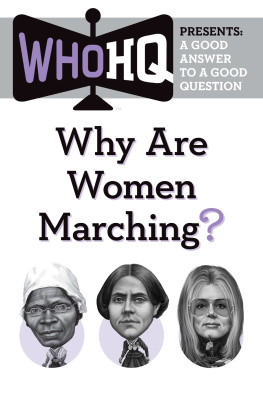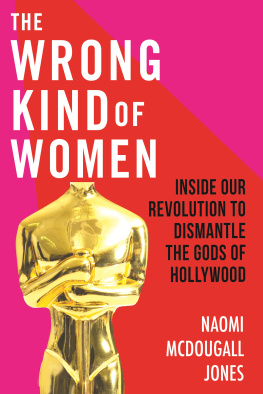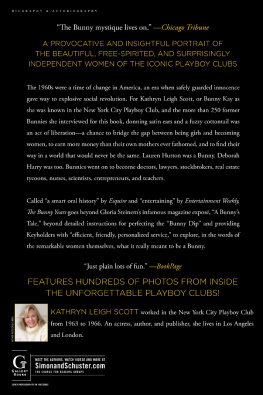It is presumptuous of me, an aged male, to attempt to write about these six women with empathy. I would not have dared to do so without the help of three women editors who have guided me in those pathways of the heart denied me by my gender. This book is gratefully dedicated to them: Marcelle DArgy Smith, Nina Risoli and Jaime Brahms.
Whats wrong with marrying rich women? Those little bastards who criticise me dont understand. I took them simply as women.
And whats wrong with taking presents from a woman? I give them too, even though I give a ring and she gives a bomber. An aeroplane is not the moon, its a toy. If you can have a bomber you have it. So what?
W hy do women fall for scoundrels? Not all women certainly, but an identifiable number of them including almost all heiresses find themselves drawn to, even marrying, a thoroughgoing bastard who cheats on them, steals their money, abuses them physically and mentally, then dumps them. Why, to these otherwise balanced young women, is Mr Wrong irresistible? What is it about him, what is it in them, that causes it? In short, what is the nexus between wealth, celebrity, sex and self-destruction?
This is the serial biography of five women who were all serially married to the same man: Porfirio Rubirosa. All, plus Zsa Zsa Gabor, the Hungarian adventuress who did not wed him, were advantaged and privileged individuals. They shared one characteristic: power. The father of the first, Flor Trujillo, owned a whole country; Danielle Darrieux was a movie star by the age of sixteen; Barbara Hutton, the poor little rich girl, was extravagantly wealthy; Doris Duke the richest woman in the world; Zsa Zsa was endowed with beauty, wit and glamour; Odile Rodin with looks, talent and youth. All were born in a happy hour and gifted by good fortune. They had on the face of it choice in how they ran their lives, together with control.
Rubirosa was vulnerable only in one way: he had no money. There, except for Odile, the women held the material advantage. Yet without hesitation they abjectly yielded that power to a dominating male with no conscience in exploiting them.
Flor at seventeen was an innocent and Rubirosa an unknown quantity (perhaps even to himself then), but the women who followed her as his successive wives were fully aware of his nature and his past before they married him. They knew he was a boozer and hell-raiser, compulsively promiscuous, a jewel-thief and unscrupulous crook, that he exploited and beat up women, and had been involved in two murders. Hed concealed nothing from them and enjoyed his reputation as a cad. Yet nothing could deflect them from their focused determination to capture him as a husband. Why should they elect to make such a choice, for which they paid so extortionate a price both emotionally and financially?
He was known to everyone as Rubi and, displayed in the shop window, his image was alluring. To look at, he was an attractive item. Although not tall (5ft 8in), he had dark wavy hair and a permanent tan; he was either one quarter or one eighth black, resulting in an enviable skin tone. His nose was broad (he would have it fixed) and his lips thick in a high-cheek-boned handsome face. His body was slim, fit and well-muscled; he moved with an athletes grace, fully at ease within his own skin.
For a woman meeting him while in his thirties by which time his early macho brashness has long been replaced by the confidence he can have any woman in the world he represents a desirable sexual proposition, if one to be approached with caution. He is a playboy and predator, a creature of his time and place and social circumstances, a man who has been created by women and defined by the lovers who made him famous: Christina Onassis, Ava Gardner, Eva Pern, Gene Tierney, Countess Maritza of Spain and Queen Alexandra of Yugoslavia, plus countless others.
He possesses looks and sex appeal, a quick smile, good teeth and bedroom eyes. An adolescence passed on the fringe of the in-crowd in Paris has gifted him with social ease, wit, and opportunistic guile. He can converse engagingly in several languages. He is romantic, bold in his wooing, generous and impulsive; he never bores. His technique has proved irresistible, for he listens with his whole attention on the woman confiding in him. He remains mindful, sensitive, sympathetic; she believes he understands her.
These characteristics form the basis to his persona, but it is enhanced by a number of worldly skills. He is an able horseman, a boxer and a fencer; he dances, skis and plays tennis well. He is a rated polo player, knows how to pilot a plane and handle a racing car nimbly as he can a pony. All these pastimes which so well suit him cost money, and here lies the fundamental flaw in Rubis world. His image is without solidity. He possesses the tastes, energy and appetite for the life of a celebrity playboy but he lacks money. Hes blithely indifferent to it except as a necessary resource; he has no desire to amass capital, only to have fun and spend freely.
Rubi also lacks something less tangible than cash. He is an entirely social animal and, as a fish in a bright-lit aquarium, entirely dependent on his artificial environment to give him life. He is alive only among others in the setting of bars, restaurants, resorts, in a glossy milieu composed of glamour, gossip columns, photographers, seductions and escapades. With Rubi, what you see is what is, he has no inner resources. If hes alone in a room there is no one there.
Perhaps to compensate for this existential lack of substance, providence has gifted him with a singular and outstanding attribute. In the 1960s the giant pepper grinders brandished by waiters in fashionable trattorias were named Rubirosas. His third wife Doris Duke states that he had the most magnificent penis I had ever seen. Her godson, Pony Duke, quotes her saying, There has never been anything like it six inches in circumference much like the last foot of a Louisville Slugger baseball bat. The society photographer Jerome Zerb, who followed him into the mens room in Deauville casino, reports, It looked like Yul Brynner in a black turtleneck. And Truman Capote wistfully eulogises about that quadroon cock, a purported eleven-inch caf-au-lait sinker, thick as a mans wrist. In the fashionable world it had the nickname and reputation toujours prt always ready.
Yes, Rubi was phenomenally well-endowed, and certainly this formed part of his attraction but, as many hundreds of women could testify, you did not have to wed him to sample it. It was on offer to any female bidder and for the right price it was available for rent. Rubi possessed more. He had an air of natural entitlement, a charismatic presence and with it charm, which worked not just on women but also (most) men. He behaved as he felt like behaving and saw no reason not to do so. Yet he was no braggart and happily told stories against himself. He was worldly, suave, he had an air of mystery and reeked of danger. Twenty-five years before the invention of James Bond, he set the prototype except that Rubi served no country but himself.
No woman in her right mind wants to marry James Bond. Thats not what hes for. To marry Rubi was an equally misjudged self-destructive act. To understand why these particular women took that mortal step it is perhaps necessary not so much to scrutinise him as examine them.
FLOR TRUJILLO, DOMINICAN
REPUBLIC, 1932
H omesick is how you get when you have to return there.
That, anyway, is how it is for Flor as she stands in her First Class cabin watching the steward gather together her many items of luggage, twenty minutes before the liners arrival at the dreaded shore of home.
Rather than the single dollar bill the boy would have got from other passengers, she tips him a five (worth around $100 today, but even a trainee celebrity is obliged to exceed), instructing him to bypass Customs on arrival Tell them who I am and to load the bags directly onto one of the presidential limos he will find drawn up behind the quay. She checks her appearance for the last time in the mirror, which reflects the image of a slender seventeen-year-old girl with bobbed black hair in a small cloche hat and short-skirted linen suit, then quits her cabin to come on deck when the liner is still a mile from shore.









